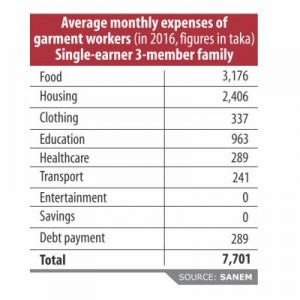Bangladesh must grow 10pc annually for 20 years: ADB chief
Bangladesh must grow 10pc annually for 20 years: ADB chief
Bangladesh needs to clock in at least 10 percent economic growth for the next two decades if it wants to become a developed country by 2041, said Takehiko Nakao, president of the Asian Development Bank, yesterday.
“It is not impossible, but not so easy also,” he said at a media briefing held at the Manila-based multilateral lender’s office in Dhaka. Going by Bangladesh’s current GDP growth rate of 7 percent, the per capita income would hit $6,000 after 20 years, which is half the threshold for an advanced economy.
“Unless Bangladesh makes serious efforts like what China did in the 1990s and 2000s and registered 10 percent growth, it cannot be reachable,” said Nakao, who is in Dhaka on a three-day visit. China grew at 10 percent or more for about two decades and its per capita income now stands at $8,000. The higher economic growth hinges on investment in infrastructure, good investment climate, foreign direct investment, consistent policies of successive governments and the use of geographical advantage surrounding India, China and Southeast Asian nations.
Nakao, who is additionally Japan’s former vice-minister of finance for global affairs, stated FDI had played a very necessary role in China’s fast monetary development. Data suggests FDI accounted for 2 to 3 percentage of China’s GDP for many years. “But it is only 0.6 percentage in Bangladesh,” stated Nakao, who is main the ADB for the second term. The ADB president additionally touched upon Bangladesh’s revenue, which is about 10 percentage of GDP.
He said that he is nicely conscious that the implementation of the new VAT law has been delayed twice due to resistance from the enterprise community. “Revenue is no longer to make humans suffer; it is to aid the terrible people,” he said, adding that he supports the government’s pass to implement a new value-added tax law to increase income earnings.
Although VAT appears like tax on consumption, it is a very broad-based tax. “I aid the government pass to elevate income through VAT,” he said.
On the much-talked about Rohingya refugees, he hailed Bangladesh for extending full aid to the displaced community. “The government is so serious about the living requirements of those refugees and is making an attempt to settle them in an island. ADB is prepared to guide the u . s . if there is any positive request to address this issue.”
The ADB is but to get any concrete idea from Bangladesh for financing the resettlement of refugees. Asked if the multilateral lender would provide financing for the second Padma Bridge and other mega projects, he said: “If we get any such request we can consider it.” The Manila-based lender has already bumped up its lending to Bangladesh and ultimate year it disbursed $2.1 billion.
“We are geared up to enlarge lending if there is any demand,” he said, whilst citing the current trebling of the bank’s fairness to $50 billion as proof of its greater lending capacity. ADB has set a target to prolong $8 billion to Bangladesh in assistance for the 2016-2020 period, up 60 percent from the previous 5 years.
In response to another query on Bangladesh’s commencement from the least-developed united states of america bracket and its affect on ADB’s lending terms, he said: “Bangladesh is already a decrease center earnings u . s . a . but ADB is still imparting concessional loans.” On the growing inequality, he stated it is an difficulty for all and respective nations need to pay attention at an early stage before it will become a huge problem. “Equality is the major foundation for sustainable growth.”
The ADB president pressured on the need for policy consistency as properly for sustainable growth. “I hope this u . s . a . will continue with steady policies in terms of macro-economy and infrastructure funding regardless of leaders and ruling birthday celebration of the country.”
Nakao, who leaves Dhaka today, met with Prime Minister Sheikh Hasina, Finance Minister AMA Muhith and different senior officials and discussed issues to similarly beef up the ADB’s 45-year partnership with Bangladesh all through the visit.

